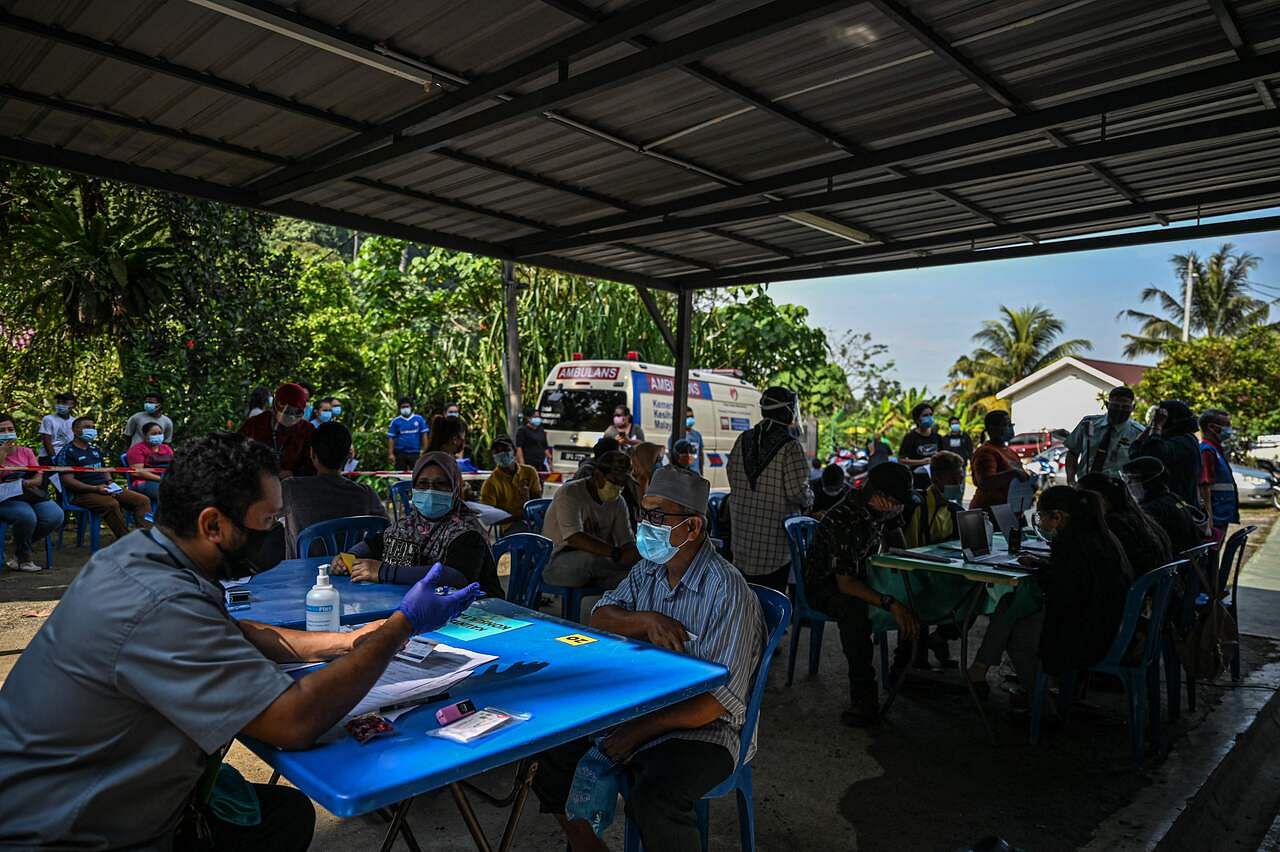Malaysians talk of mental anguish as Covid-19 lockdown is extended
KUALA LUMPUR – Ms Firdaus Nisha used to earn a good income from her small environmental consulting firm in Kuala Lumpur, but now, more than a year after the pandemic started, she has slipped into the lower-income group.
She said her business, which had to shift its office and cut overheads, has effectively been in “cold storage” for much of this year.
“I used to think I am in the middle-income category, but now I have slipped into the B40 (lower income group) category,” Ms Nisha told The Straits Times.
Her firm’s work is usually done with international clients and schools, but with borders mostly closed and schools shuttered, work has been drying up.
Now that Malaysia’s full lockdown – originally scheduled to end on Monday (June 28) – has been extended indefinitely, the future looks bleak for Ms Nisha.
“I am already broke, so I am just thinking about how to survive for the next few months. If I start thinking (about finances), I would go into a panic state,” she said. “When (the lockdown) is extended indefinitely, we have nothing to look forward to.”
Ms Nisha urged the government to re-evaluate where people are economically and provide them with consistent aid, saying there are many like her who have slipped in the income category as a result of a challenging year. “We need proactive measures, not reactive ones,” she said.
Prime Minister Muhyiddin Yassin announced on Sunday that the full lockdown – which is costing the country RM1 billion (S$322 million) a day – would be extended indefinitely as Covid-19 numbers remained stubbornly high.
That means millions of Malaysians will spend a third month under some form of lockdown. They were in a partial lockdown for much of May before the full lockdown began on June 1.
And with no end date given, Malaysians are speaking of the toll that the lockdown and pandemic are taking on their mental health, relationships and finances.
Mrs Elvina Fernandez understands the need to prolong the curbs due to the high number of cases every day, but she has had “mixed feelings”.
“I also wonder what will happen to all the people who are surviving on daily wages. Once (the pandemic) is over, what kind of community we are going to create,” the freelance writer told ST, adding that she imagined a post-pandemic society where poverty and social ills might be on the rise.
Mrs Fernandez – who left her previous job as an executive last year – initially wanted to return to the workforce after a couple of months’ break. But she has been putting off the plans as Malaysia has spent much of this year so far dealing with high numbers of Covid-19 cases, a state of emergency, and various iterations of lockdown.
“Fortunately, for now, I have been able to survive despite not having a full-time job,” she told ST.
Even those who are still employed are feeling the strain of the prolonged closure of the economy and restrictions on movement.
An oil and gas industry worker from an offshore platform – who wanted to be known only as Raj – said that Covid-19 protocols meant he is separated from his family for long periods . He works for four weeks and has to quarantine for two weeks before returning home.
“I spend six weeks away from the family, and only get 10 days with them. We can’t go anywhere when onshore,” Mr Raj told ST. “There is no mental stability, and it is affecting my family and my relationship.”
Mr Raj’s income has fallen by up to 70 per cent since the pandemic started. He lost a previous job at an oil field overseas and returned to Malaysia at the onset of the pandemic, and subsequently went 11 months without work.
“When I heard about the extension, I just felt helpless,” he said.
Tan Sri Muhyiddin said Malaysia will remain under the lockdown until the daily case load reduces to below 4,000 infections a day – a number last seen more than a month ago.
The country recorded 5,218 infections on Monday, bringing the total tally to 739,266. Another 57 deaths were recorded, meaning the death toll now stands at 5,001.
Malaysia is on a four-phase Covid-19 exit plan that will likely see a reopening of the economy only towards the end of the year.
To move to a second phase – which will allow more businesses to open – daily cases need to drop below 4,000, 10 per cent of its population has to be fully inoculated, and intensive care bed usage needs to return to moderate levels.
ICU bed usage remains above 90 per cent, while only 6.4 per cent of Malaysians are currently fully inoculated. The 10 per cent vaccination target is expected to be reached in mid-July.
As the lockdown drags on, some are worried about the impact on children.
A communications executive and mother of two – who wanted to be known only as Amy – said: “Reduced physical activity impacts a healthy body and mind. It’s even worse on kids, who are happy to sit with devices but there are long-term effects to this.”
“My heart goes out to those living in confined spaces,” she said.
Join ST’s Telegram channel here and get the latest breaking news delivered to you.
Source: Read Full Article



